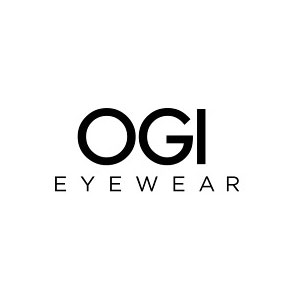Some visual conditions cannot be treated adequately with just glasses, contact lenses and/or patching, and are best resolved through a program of Vision Therapy. Have questions about Vision Therapy? Don't hesitate to call our office.
What is Vision Therapy?
Vision Therapy is an individualized, supervised, treatment program designed to correct visual-motor and/or perceptual-cognitive deficiencies. Vision Therapy sessions include procedures designed to enhance the brain's ability to control:
- eye alignment
- eye teaming
- eye focusing abilities
- eye movements
- visual processing
Visual-motor skills and endurance are developed through the use of specialized computer and optical devices, including therapeutic lenses, prisms, and filters. During the final stages of therapy, the patient's newly acquired visual skills are reinforced and made automatic through repetition and by integration with motor and cognitive skills.
Who Can Benefit From Vision Therapy?
Patients of all ages can benefit from vision therapy. The nature of the therapy program varies with the condition treated. For example, a three-year-old child with amblyopia, or "lazy eye", may simply have the better eye patched for a short period of time. An eight-year-old child with strabismus, or "crossed eye", may require therapy for a period of a year. A thirty-year-old computer programmer may require three to six months to solve a visual problem that causes significant eye strain.
Children and adults with visual challenges such as the following are often benefitted by vision therapy.
- Learning-related Vision Problems
Vision Therapy can help those individuals who lack the necessary visual skills for effective reading, writing, and learning (i.e., eye movement and focusing skills, convergence, eye-hand activity, visual memory skills, etc.).- To learn more about vision-related learning problems, visit any of these web pages on on reading, ADD/ADHD, tracking or convergence insufficiency .
- Poor Binocular Coordination
Vision Therapy helps individuals develop normal coordination and teamwork of the two eyes (binocular vision). When the two eyes fail to work together as an effective team, performance in many areas can suffer (reading, sports, depth perception, eye contact, etc.).- To learn more about binocular vision, visit these web pages on 3D vision and depth perception, convergence insufficiency or The Framing Game.
- Strabismus and Amblyopia
Vision Therapy programs offer much higher cure rates for turned eyes and/or lazy eye when compared to eye surgery, glasses, and/or patching, without therapy. The earlier the patient receives Vision Therapy the better, however, our office has successfully treated patients well past 21 years of age.- To learn more about crossed eyes or lazy eye, visit the many web pages of strabismus.org, children-special-needs.org or lazyeye.org.
- Find out about eye muscle surgery as a treatment option for crossed eyes and lazy eye.
- Stress-induced Visual Difficulties
21st century lifestyles demand more from our vision than ever before. Children and adults in our technological society constantly use their near vision at work and at home. C.V.S. (Computer Vision Syndrome) is one of the fastest growing health concerns in the workplace today. Environmental stresses on the visual system (including excessive computer use or close work) can induce eyestrain, headaches, and/or visual difficulties which can be effectively treated with corrective lenses and/or Vision Therapy.
- Visual Rehabilitation for Special Populations
Vision can be compromised as a result of neurological disorders or trauma to the nervous system (such as traumatic brain injuries, stroke, whiplash, developmental delays, cerebral palsy, multiple sclerosis, etc.). Vision Therapy can effectively treat the visual consequences of trauma (including double vision).- To learn more about brain injuries and vision, visit braininjuries.org.
- Sports Vision Improvement
Strong visual skills are critical to sports success. Not much happens in sports until your eyes instruct your hands and body what to do! Accurate vision and athletic visual skills can be measured, developed, and enhanced through Vision Therapy. We measure and successfully improve eye-hand coordination, visual reaction time, peripheral awareness, eye teaming, focusing, tracking, and visualization skills (to mention just a few).
Vision Therapy can be the answer to many visual problems. Don't hesitate to contact us with your questions. To read definitions for Vision Therapy by outside sources, visit children-special-needs.org.
Vision therapy is administered in our office under the guidance of your doctor. Sometimes a number of office visits are required over a period ranging from several weeks to several months. Usually the patient performs several exercises, then the doctor teaches the patient techniques to be practiced at home to reinforce the developing visual skills.
Vision therapy can effectively treat eye movement disorders, inefficient eye teaming, misaligned eyes, poorly developed vision, focusing problems, and other visual information processing disorders.
Some insurances can be billed for vision therapy sessions, depending on your plan. If you are interested in inquiring about Vision Therapy, call our office at (207) 799-3031.














